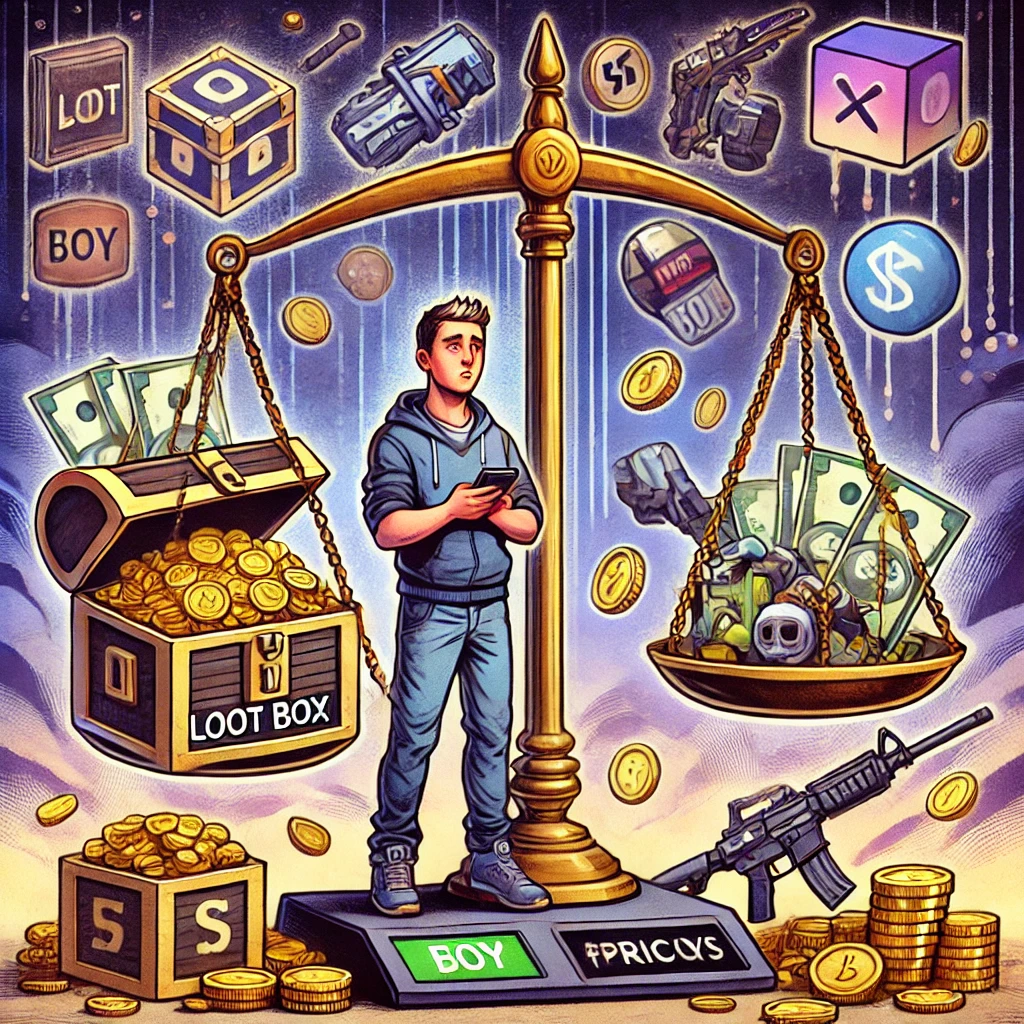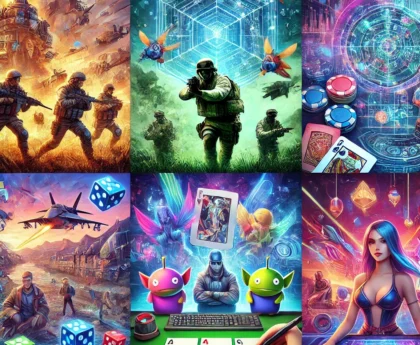Microtransactions and loot boxes have become widespread in the gaming industry, providing developers and publishers with additional revenue streams beyond the initial purchase price of games. However, these monetization methods have sparked significant controversy due to their perceived exploitation, lack of transparency, and resemblance to gambling. This article delves into the details of the controversy, the mechanics of microtransactions and loot boxes, and their impact on gamers and the industry.
What Are Microtransactions and Loot Boxes?
Microtransactions
Microtransactions are small in-game purchases that players can make to acquire digital goods. These can include:
• Cosmetic items: Skins, outfits, or weapon designs that change the appearance of characters or items.
• Gameplay advantages: Power-ups, stronger weapons, or quicker access to content, sometimes referred to as “pay-to-win.”
• Virtual currency: In-game money purchased with real money, used to buy other items within the game.
Loot Boxes
Loot boxes are digital containers that offer randomized rewards. Players can purchase or earn loot boxes, and opening them reveals items such as:
• Rare skins or cosmetic upgrades.
• Exclusive characters, weapons, or abilities.
• Consumables like health boosts or in-game currency.
The Controversy: Key Issues
1. Predatory Monetization
Critics argue that microtransactions and loot boxes exploit players, especially children and those with addictive tendencies. Games often use psychological tactics such as:
• FOMO (Fear of Missing Out): Time-limited offers push players to spend quickly.
• Progression gating: Slowing in-game progress to encourage purchases.
2. Gambling Allegations
Loot boxes resemble gambling due to their randomized nature. Players spend money without knowing what they will receive, which can lead to compulsive spending.
• In some countries, such as Belgium and the Netherlands, loot boxes are classified as gambling and are restricted or banned.
3. Pay-to-Win Mechanics
Games offering gameplay advantages through purchases create an unfair playing field. Players who spend more money gain advantages over those who cannot or choose not to pay.
4. Transparency and Odds Disclosure
Many games fail to disclose the odds of receiving specific items from loot boxes. Without transparency, players often have unrealistic expectations about their chances of obtaining rare items.
5. Impact on Game Design
Developers may design games to encourage spending rather than prioritize gameplay quality. This includes introducing grind-heavy mechanics or creating artificial difficulty spikes.
Prominent Controversies
1. Electronic Arts (EA) and Star Wars: Battlefront II
• The game faced backlash for its aggressive use of microtransactions. Key characters were locked behind extensive grind times or required payments to unlock.
• EA’s infamous comment about providing a “sense of pride and accomplishment” became a meme symbolizing corporate greed.
• After significant public outcry, EA removed paid microtransactions temporarily.
2. Activision Blizzard and Overwatch
• Overwatch popularized loot boxes as a way to obtain cosmetic items.
• Critics argued that the randomized rewards encouraged gambling-like behavior, especially among younger audiences.
3. Mobile Games and Predatory Practices
• Many free-to-play mobile games heavily rely on microtransactions and loot boxes for revenue.
• Titles like Clash of Clans and Candy Crush have been criticized for “whale hunting,” a term for targeting players who spend exorbitantly.
4. FIFA’s Ultimate Team Mode
• EA’s FIFA series earns billions annually through its Ultimate Team mode, where players purchase packs (loot boxes) to build their teams.
• Accusations of gambling mechanics and addiction have led to lawsuits and government investigations.
Defenses from the Industry
1. Revenue Necessity
Developers argue that rising production costs make microtransactions and loot boxes essential for sustaining profitability, especially for free-to-play games.
2. Optional Purchases
Publishers claim that these features are optional and don’t impact players who choose not to spend money.
3. Entertainment Value
Some players enjoy the excitement of opening loot boxes or customizing their characters with paid items.
Regulatory and Industry Responses
1. Legislation
• Countries like Belgium and the Netherlands have banned loot boxes resembling gambling.
• The UK and the US are investigating their impact on minors, with some lawmakers proposing stricter regulations.
2. Self-Regulation
• The Entertainment Software Rating Board (ESRB) and Pan European Game Information (PEGI) now label games with loot boxes or microtransactions.
• Some companies, like Microsoft and Sony, require games to disclose odds for loot boxes on their platforms.
3. Alternative Monetization Models
• Subscription services like Xbox Game Pass provide access to games without additional microtransactions.
• Battle passes, offering tiered rewards, have gained popularity as a more transparent alternative to loot boxes.
Impact on Gamers and the Industry
1. Financial Strain on Players
Gamers, especially minors, may spend large sums of money on microtransactions, leading to financial difficulties.
2. Erosion of Trust
Aggressive monetization practices damage player trust in game developers and publishers.
3. Economic Success for Developers
Despite controversies, microtransactions and loot boxes generate billions in revenue, incentivizing companies to continue using them.
Future of Microtransactions and Loot Boxes
As the debate continues, the gaming industry faces growing pressure to address player concerns while maintaining profitability. Innovations like blockchain-based gaming economies and player-driven marketplaces may offer alternatives, but their implementation remains uncertain.
Microtransactions and loot boxes are a double-edged sword. While they provide financial stability for developers and enhance gaming experiences for some players, their exploitative potential and resemblance to gambling remain significant concerns. A balanced approach—combining transparency, regulation, and player-first game design—can help address these issues, ensuring that gaming remains a fair and enjoyable pastime for all.




